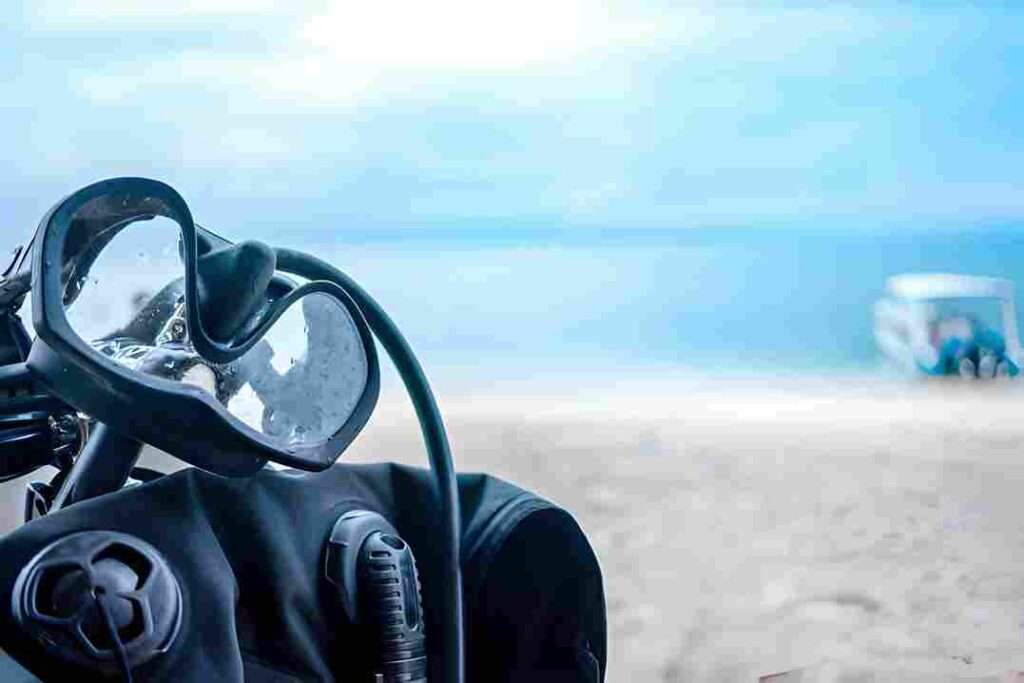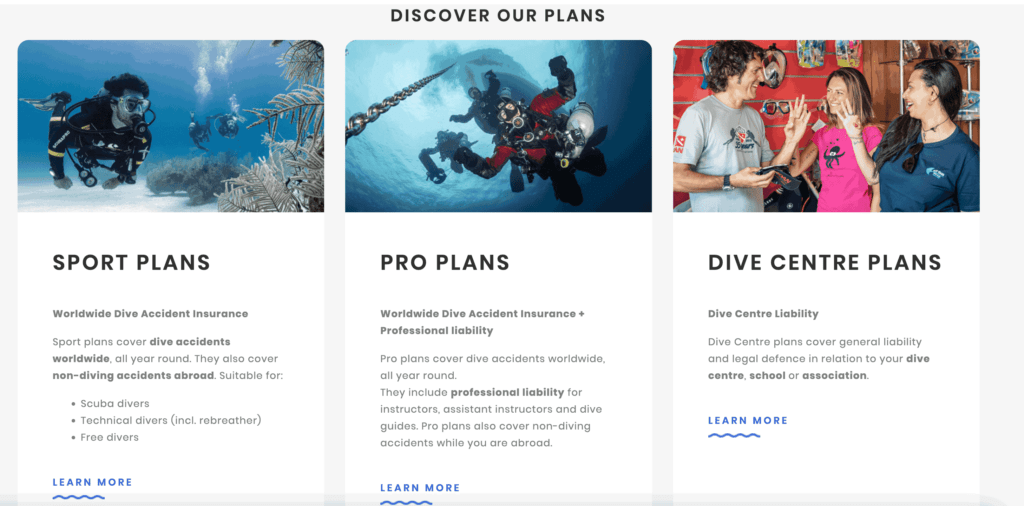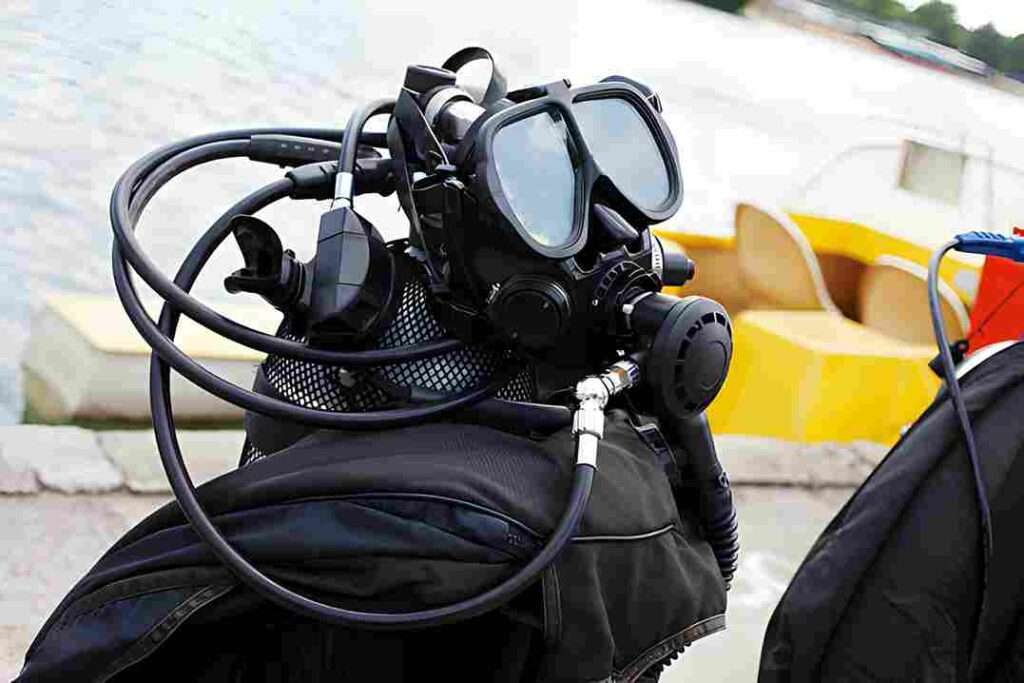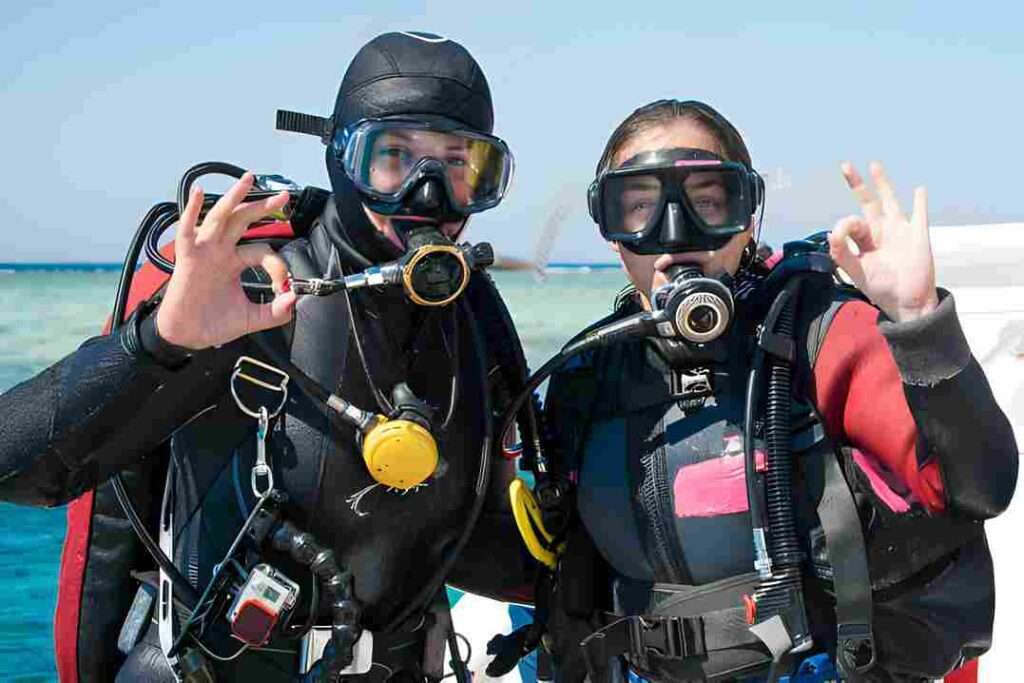Diving insurance isn’t something we always think about when gearing up for an underwater adventure, but it’s a safety net that can make all the difference. Imagine you’re about to dive into a stunning reef or shipwreck when something unexpected happens—your equipment fails or you face a medical emergency. It’s not a scenario we want to consider, but it’s a reality that divers face more often than we realize.
While diving is an incredible experience, it comes with its risks. From lost gear to medical treatments, the costs can add up fast. That’s where Diving insurance steps in, protecting you from unexpected expenses and giving you the peace of mind to focus on your dive. With the right coverage, you can enjoy your underwater adventures knowing you’re prepared for whatever might come your way.
In this post, we’ll explore why diving insurance is essential, what it covers, and how to choose the best policy for your diving needs. Let’s dive in!
Understanding Diving Insurance
Diving insurance is a type of insurance policy designed to protect divers from unforeseen circumstances that may arise while diving. It provides coverage for medical expenses, equipment loss or damage, and other related risks.
Purpose of Diving Insurance
The main goal of Diving insurance is to offer divers financial protection when accidents, injuries, or emergencies happen underwater. It can be a true lifesaver, especially when medical treatment is needed, but your regular health insurance won’t cover it. Beyond medical emergencies, diving insurance also helps with the cost of lost or damaged equipment—a huge relief given how expensive dive gear can be.
Types of Diving Insurance Coverage
There are various types of Diving insurance coverage available, and divers can choose the one that best suits their needs. Some of the most common types of coverage include:
- Medical coverage: This type of coverage provides financial protection for medical expenses incurred due to diving accidents or injuries. It can also cover the cost of emergency medical evacuation if necessary.
- Equipment coverage: This type of coverage provides financial protection for lost or damaged diving equipment. It can cover the cost of repairing or replacing equipment, which can be expensive.
- Liability coverage: This type of coverage provides financial protection if the diver is held responsible for causing damage or injury to another person while diving. It can cover legal fees and compensation for damages.
- Travel coverage: This type of coverage provides financial protection for travel-related expenses, such as trip cancellation or interruption, lost luggage, and other travel-related risks.
It is important to note that not all Diving insurance policies are created equal. Divers should carefully review the policy terms and conditions to ensure that they are adequately covered for their specific needs.
Why You Need Diving Insurance
Diving can be one of the most exhilarating experiences, allowing you to explore breathtaking underwater landscapes and encounter unique marine life. However, it’s not without its risks. Understanding these risks is crucial for every diver, whether you’re a seasoned pro or just starting out.
Discussion of the Risks Associated with Diving
Diving comes with inherent risks, including:
- Medical Emergencies: Decompression sickness (the bends), shallow water blackout, and other medical emergencies can occur unexpectedly.
- Equipment Failure: Diving gear can fail due to wear and tear or improper use, potentially leading to dangerous situations.
- Environmental Hazards: Strong currents, poor visibility, and encounters with marine wildlife can pose significant risks during dives.
- Travel-Related Issues: If you’re diving abroad, travel-related problems such as flight cancellations or lost gear can add stress to your experience.
Importance of Financial Protection in Case of Accidents
Having Diving insurance provides a crucial safety net in the event of accidents or emergencies. Without insurance, the costs associated with medical treatment, emergency evacuations, or equipment replacement can skyrocket, leading to financial strain. Insurance can help alleviate this burden, allowing you to focus on your recovery and peace of mind rather than worrying about mounting bills.
Examples of Situations Where Diving Insurance is Beneficial
- Medical Treatment: If you suffer an injury while diving, Diving insurance can cover the costs of emergency medical treatment, including visits to hyperbaric chambers, which can be quite expensive without coverage.
- Equipment Loss: Imagine arriving at your Dive destination only to find that your expensive dive gear has been lost or damaged during transit. Diving insurance can help you replace or repair your equipment, ensuring that you’re ready for your next adventure.
- Emergency Evacuations: In case of a serious medical emergency, you may need to be evacuated from a remote dive site to a medical facility. Diving insurance often covers these costly evacuation fees, giving you peace of mind while exploring.
- Liability Coverage: If an accident occurs that involves other divers or third parties, liability insurance can protect you from potential legal fees and claims.
Eligibility and Requirements
When it comes to diving insurance, there are certain eligibility requirements that divers must meet. Here are some of the most important factors that insurers take into account:
Age and Health Restrictions
Most Diving insurance providers require divers to be at least 18 years old to qualify for coverage. In addition, many insurers have health-related criteria that need to be met. For instance, some may exclude individuals with pre-existing medical conditions or require a medical exam before approving coverage. These health requirements help ensure that divers are fit for underwater activities before granting protection.
Certification and Training Levels
Most diving insurance policies require that divers hold a valid certification from a recognized diving organization, such as PADI or NAUI. Additionally, insurers may require divers to have a certain level of training or experience before coverage can be granted. For example, some policies may only provide coverage for divers who have completed a certain number of dives or who hold a specific level of certification.
It is important for divers to carefully review the eligibility requirements of any diving insurance policy they are considering to ensure that they meet all of the necessary criteria. Failure to meet these requirements could result in a denial of coverage in the event of an accident.
| Eligibility Criteria | Description |
| Age Requirements | Minimum age of 18 years for coverage |
| Health Requirements | May require passing a medical examination |
| Pre-existing Conditions | Typically excluded from coverage if related to the condition |
| Lifestyle Factors | Certain risky activities (e.g., extreme sports) may affect eligibility |
| Geographical Limitations | Some insurers may have restrictions based on your location or dive site |
Coverage Details
When considering Diving insurance, it is important to understand the coverage details. Most policies will cover medical expenses resulting from Scuba diving accidents, but there may be additional coverage options available depending on the policy.
Medical Expense Coverage
Medical expense coverage is a standard inclusion in most diving insurance policies. This coverage will typically pay for medical expenses resulting from a diving accident, including hospitalization, surgery, and emergency transportation. It is important to note that some policies may have limits on the amount of coverage provided, so it is important to review the policy details carefully.
Equipment and Personal Effects
In addition to medical expense coverage, some Diving insurance policies may also include coverage for equipment and personal effects. This coverage will typically pay for the repair or replacement of Diving equipment that is lost, stolen, or damaged during a diving trip. It may also cover personal effects such as cameras, watches, and other items that are lost or damaged during the trip.
Trip Interruption and Cancellation
Another type of coverage that may be included in diving insurance policies is trip interruption and cancellation coverage. This coverage will typically pay for the cost of a diving trip that is canceled or interrupted due to unforeseen circumstances, such as illness, injury, or severe weather. It may also cover the cost of additional travel expenses incurred as a result of the interruption or cancellation.
Overall, it is important to carefully review the coverage details of any diving insurance policy before making a purchase. By understanding the coverage options available, divers can ensure that they are adequately protected in the event of a diving accident or other unforeseen circumstances.
How to Choose the Right Diving Insurance

Choosing The right diving insurance is essential for ensuring you’re adequately protected while exploring the depths. With various options available, it’s important to consider several factors to find a policy that best meets your needs.
Factors to Consider When Selecting a Policy
- Coverage Limits
- Ensure that the policy covers sufficient medical expenses, equipment loss, and emergency evacuation costs. Some providers may offer policies with coverage limits as low as $50,000, while others can go up to $1 million or more.
- According to a 2021 survey by the Divers Alert Network (DAN), about 40% of divers reported experiencing unexpected expenses during dives, highlighting the need for adequate coverage.
- Exclusions
- Carefully read the exclusions in the policy. Common exclusions may include pre-existing medical conditions, certain types of diving (e.g., cave diving, ice diving), or injuries resulting from drug use.
- Make sure to clarify any ambiguous terms with the insurer to avoid surprises later.
- Policy Types
- Different policies cater to various types of divers—casual recreational divers may have different needs compared to professional or technical divers. Consider whether you need coverage for commercial diving or if a standard recreational policy will suffice.
- Medical Requirements
- Be aware of any medical exams or health questionnaires that may be required. Some insurers have strict health requirements, and failing to meet them may lead to denial of claims.
- Reputation and Customer Service
- Research the reputation of the insurance provider. Look for reviews and testimonials from other divers to gauge their experiences with claims processing and customer support.
Comparison of Different Providers
When comparing diving insurance providers, consider using comparison websites or resources that specialize in travel or adventure insurance. Some popular providers include:
- DAN (Divers Alert Network): Offers comprehensive plans specifically tailored for divers.
- DiveAssure: Known for flexible plans and coverage for recreational and professional divers.
- World Nomads: Great for travelers who want adventure coverage, including diving.
- Allianz Global Assistance: Offers broader travel insurance that can include diving coverage.
You can compare plans based on coverage options, premiums, exclusions, and customer reviews on sites like:
Recommendations for Trusted Insurance Companies
- DAN (Divers Alert Network): Highly recommended by the diving community for its specialized coverage and support services for divers.
- DiveAssure: Offers various plans tailored for both recreational and professional divers, including comprehensive medical coverage.
- Travel Guard: Provides extensive travel insurance options with the possibility of adding diving coverage.
- AXA Assistance: Known for its global reach and reliable customer service, AXA offers flexible plans that can include diving coverage.
Statistics
- According to the National Association of Insurance Commissioners (NAIC), about 70% of travelers do not have travel insurance, which often includes essential coverage for activities like diving.
- A study conducted by DAN showed that divers who had insurance were more likely to seek medical assistance after an accident, emphasizing the importance of having the right coverage.
Pricing and Premiums

When it comes to Diving insurance, pricing and premiums can vary widely depending on several factors. Understanding these factors can help divers make informed decisions about the type of coverage they need and how much they are willing to pay for it.
Factors Affecting Premiums
The following are some of the key factors that can affect the cost of diving insurance premiums:
- Age and Health: Divers who are older or have pre-existing medical conditions may pay higher premiums due to the increased risk of injury or illness.
- Diving Experience: Divers with more experience may pay lower premiums because they are less likely to make mistakes or encounter dangerous situations.
- Type of Diving: The type of diving a person does can also impact their premiums. For example, technical diving or cave diving may be considered riskier and therefore result in higher premiums.
- Coverage Amount: The amount of coverage a person chooses can also impact their premiums. Higher coverage amounts will generally result in higher premiums.
- Insurance Provider: Different insurance providers may offer different pricing structures and premiums for diving insurance. It’s important to compare options from multiple providers to find the best deal.
Discounts and Deals
While diving insurance premiums can be expensive, there are some discounts and deals available that can help divers save money. Some insurance providers offer multi-policy discounts for customers who bundle their diving insurance with other types of insurance, such as travel insurance or homeowners insurance. Additionally, some providers offer discounts for divers who take safety courses or have a certain amount of experience.
It’s important to note that while discounts can help lower premiums, it’s still important to choose a policy that provides adequate coverage for a diver’s needs. Cutting corners on coverage to save money can end up being more expensive in the long run if an accident occurs and the diver is not adequately covered.
Claims Process

When it comes to dive insurance, it’s important to know the claims process in case an incident occurs. Here are the steps to follow for filing a claim, the documentation requirements, and the claim settlement process.
Filing a Claim
If an incident occurs during a dive, the insured should contact their insurance provider as soon as possible. The provider will then provide the necessary forms and instructions for filing a claim. The insured should fill out the forms completely and accurately and submit them along with any required documentation.
Documentation Requirements
Documentation is an essential part of the claims process. The insured should provide as much documentation as possible to support their claim. This may include:
- Medical records
- Police reports
- Witness statements
- Photos or videos of the incident
- Receipts for any expenses related to the incident
The insurance provider may request additional documentation depending on the nature of the claim.
Claim Settlement
Once the claim is submitted, the insurance provider will review the claim and the supporting documentation. If the claim is approved, the insurance provider will issue payment to the insured. If the claim is denied, the insurance provider will explain the denial.
It’s important to note that the time it takes to settle a claim can vary depending on the complexity of the claim and the amount of documentation required. The insured should keep in contact with the insurance provider throughout the claims process to ensure that the claim is being processed promptly.
By following these steps, the insured can ensure that their claims are processed accurately and efficiently, providing the necessary coverage in case of an incident.
Risks and Exclusions
Diving is an adventurous and exciting activity, but it also comes with its own set of risks. Even with proper training and equipment, accidents can happen. That’s why it’s essential to have Siving insurance to cover any unexpected incidents.
Common Exclusions
Diving insurance policies typically have exclusions that limit their coverage. For example, most policies won’t cover pre-existing medical conditions or injuries sustained while under the influence of drugs or alcohol. It’s important to read the policy carefully to understand the exclusions and limitations.
Another common exclusion is reckless behavior. If the diver disregards safety rules or dives beyond their training and experience, the insurance policy may not cover any resulting injuries. The same is true for diving beyond certified limits or engaging in certain high-risk activities like cave diving or technical diving.
High-Risk Activities
Some diving activities are considered higher risk than others, and insurance policies may have additional exclusions for these activities. For example, wreck diving, ice diving, or deep diving may have different coverage limitations than recreational diving. The insurance policy may require additional Certifications or training before covering these activities.
It’s important to note that not all diving insurance policies are created equal. Some policies may have more exclusions or limitations than others. It’s essential to research and compare policies to find the one that best suits the diver’s needs.
In summary, diving insurance is an important investment for any diver. However, it’s crucial to understand the policy’s exclusions and limitations to ensure adequate coverage. Divers should carefully read the policy and research different options to find the best policy for their needs.
International Diving Insurance

When planning a diving trip abroad, it’s important to consider purchasing international diving insurance. This type of insurance provides coverage for medical expenses and emergency evacuation while diving outside of one’s home country.
Travel Insurance vs. Diving Insurance
While travel insurance may offer some coverage for diving-related incidents, it is not always comprehensive. Diving insurance is specifically designed to cover the unique risks associated with Scuba diving, such as decompression sickness and other diving-related injuries. Some travel insurance policies may exclude coverage for diving, or may only provide limited coverage.
Diving insurance, on the other hand, typically includes coverage for medical expenses related to diving accidents, emergency evacuation, and equipment loss or damage. Some policies may also include coverage for trip cancellation or interruption due to a diving-related incident.
Global Coverage Considerations
When choosing an international diving insurance policy, it’s important to consider the level of global coverage provided. Some policies may only provide coverage in certain regions or countries, while others may offer worldwide coverage.
It’s also important to consider the specific activities that will be covered under the policy. Some policies may exclude coverage for certain types of diving, such as technical diving or cave diving. It’s important to carefully review the policy details to ensure that it provides adequate coverage for the planned activities.
In summary, international diving insurance is a crucial consideration for anyone planning a diving trip abroad. While travel insurance may offer some coverage, diving insurance provides comprehensive coverage for the unique risks associated with scuba diving. When choosing a policy, it’s important to consider the level of global coverage provided and the specific activities that will be covered under the policy.
Renewal and Cancellation
Policy Renewal Process
Renewing a diving insurance policy is a simple process that can be done online or by calling DAN Member Services at +1 (919) 684-2948. DAN offers a variety of membership options, including Regular and Enhanced Memberships, which can be renewed annually. Enhanced Memberships come with additional benefits, such as a print subscription to Alert Diver magazine.
To renew an Enhanced Membership, DAN members can log in to their account and select the “Renew Enhanced Membership” option. Members can also renew by calling DAN Member Services at +1 (919) 684-2948 Monday through Friday from 8:30 to 5:00 PM ET.
Cancellation Policies
DAN‘s cancellation policy allows members to cancel their membership at any time. If a member cancels their membership within the first 30 days of the policy start date, they will receive a full refund. After 30 days, members will receive a pro-rated refund based on the remaining time left on their policy.
To cancel a policy, members can call DAN Member Services at +1 (919) 684-2948 or send an email to [email protected]. Members who cancel their policy will no longer have access to DAN‘s benefits, including dive accident insurance, travel assistance, and access to DAN‘s medical information line.
It’s important to note that canceling a policy may result in the loss of any accumulated benefits, such as DAN Dollars or travel credits. Members should carefully consider the benefits of their policy before canceling.
Emergency Assistance Services
Diving accidents can happen at any time, which is why it’s important to have a reliable emergency assistance service. Most diving insurance policies offer 24/7 emergency assistance hotlines. These hotlines provide divers with immediate access to medical and travel assistance services.
Evacuation and Repatriation Coverage
If a diver suffers a serious injury or illness while diving, they may require evacuation to the nearest medical facility. In some cases, the diver may need to be repatriated to their home country for further medical treatment. Diving insurance policies may offer coverage for these expenses.
For example, DiveAssure offers evacuation and repatriation coverage for up to $500,000. This coverage includes expenses related to emergency medical transportation, medical treatment, and repatriation. DAN also offers similar coverage for its members.
24/7 Assistance Hotlines
In addition to evacuation and repatriation coverage, diving insurance policies also offer 24/7 assistance hotlines. These hotlines provide divers with immediate access to medical and travel assistance services.
For example, DAN‘s emergency hotline provides divers with access to medical professionals who can provide advice and assistance in the event of a diving emergency. The hotline is available 24/7 and is staffed by medical professionals who have experience in treating diving-related injuries and illnesses.
DiveAssure also offers a 24/7 assistance hotline that provides divers with access to medical and travel assistance services. The hotline is staffed by multilingual operators who can assist in the event of a diving emergency.
In summary, emergency assistance services are an essential component of any diving insurance policy. Divers should ensure that their policy includes coverage for evacuation and repatriation, as well as access to a 24/7 assistance hotline.
Frequently Asked Questions
What is covered under a typical diving insurance policy?
A typical diving insurance policy covers medical expenses resulting from scuba diving accidents, including emergency medical evacuation, hyperbaric chamber treatments, and hospitalization. Some policies may also cover lost or damaged dive equipment, trip cancellation, and trip interruption. It is important to read the policy carefully to understand what is covered and what is not.
How does the cost of diving insurance vary with different providers?
The cost of diving insurance can vary greatly between different providers and policies. Factors that may affect the cost include the level of coverage, the length of the coverage period, and the diver’s age and experience level. It is important to compare policies and providers to find the best coverage at the most affordable price.
What are the benefits of having a DAN membership in addition to dive insurance?
DAN (Divers Alert Network) is a leading organization in dive safety and medical research. In addition to dive insurance, DAN membership provides access to emergency medical assistance, travel assistance, and medical information resources. Members also receive discounts on dive equipment, training, and travel. Having a DAN membership can provide peace of mind and valuable resources for divers.
Can you recommend the best diving insurance for frequent travelers?
There is no one-size-fits-all answer to this question, as the best diving insurance for frequent travelers will depend on individual needs and preferences. Some popular options for frequent travelers include DiveAssure, DAN, and PADI Travel Insurance. It is important to compare policies and providers to find the best coverage for your specific needs.
Is scuba diving covered under standard travel insurance policies?
Scuba diving is not typically covered under standard travel insurance policies. However, some travel insurance policies may offer optional coverage for adventure sports, including scuba diving. It is important to read the policy carefully and understand what is covered and what is not.
Are there short-term dive insurance options available for occasional divers?
Yes, there are short-term dive insurance options available for occasional divers. Some providers offer coverage for individual trips, while others offer coverage for a specified period of time, such as a month or a year. It is important to compare policies and providers to find the best coverage for your specific needs.
